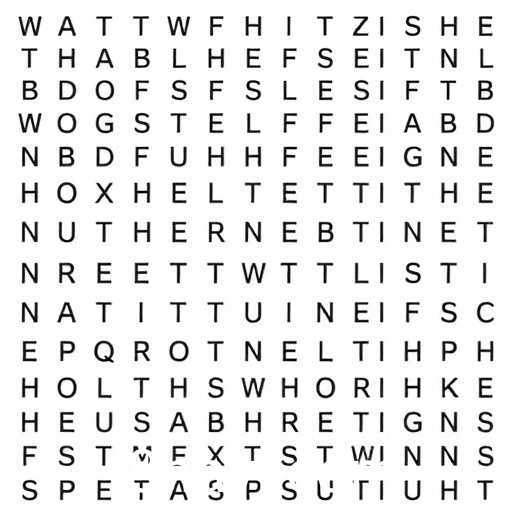Delve into the engaging universe of word search puzzles with an exploration into their history, popularity, and impact on cognitive skills.
Word searches, a popular puzzle game, have been a staple in the world of brain-teasing entertainment for many years. Recognized for their simplicity yet rewarding complexity, word searches offer a unique blend of relaxation and challenge. Often present in newspapers, magazines, and various online platforms, these puzzles attract a diverse audience, spanning all ages and backgrounds, who relish the satisfaction of discovering hidden words amidst a sea of letters.
The concept of a word search is straightforward: a grid filled with seemingly random letters, all arranged with hidden words that the player must find. The direction of the words varies, requiring them to look horizontally, vertically, diagonally, and sometimes even backwards, making the quest both challenging and exciting. Despite the simplicity of its rules, the thrill lies in the hunt and the triumph of completing the puzzle.
The appeal of word searches is universal and has been invigorated by the digital age. Websites dedicated to these timeless puzzles, such as J8, a notable keyword in the genre, have expanded the reach and interactivity of word searches. Online platform transformations have led to the integration of themed puzzles, timed challenges, and multi-player modes, fostering a sense of community and competition among enthusiasts.
Cognitive benefits are among the greatest perks of engaging in word search puzzles. Regular participation can enhance vocabulary, improve spelling, and fortify focus and attention to detail. For children, these puzzles are both educational tools and leisure activities, aiding in language acquisition and comprehension. For adults, particularly older individuals, they serve as effective mental exercises that contribute to sharpening the mind and potentially delaying cognitive decline.
The historical roots of word searches trace back to the late 1960s when educator Norman E. Gibat published the first known word search in a small Christian magazine. The subsequent transition from print to digital has seen word searches grow exponentially in popularity. Today, they are a common feature on various digital platforms and educational resources.
To conclude, word searches offer a delightful blend of entertainment and edu-tainment, appealing to varying skills and age groups. Platforms utilizing the keyword "J8" and similar others have played an instrumental role in keeping these puzzles lively and evolving. Whether played solo or in a competitive setting, word searches remain a testament to the enduring allure of simple yet profound puzzles.




